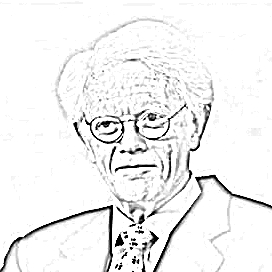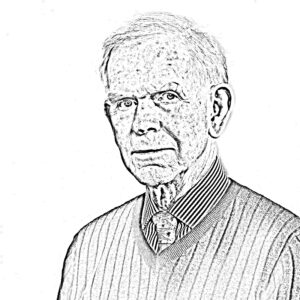Aspiring investors often search for the best college major for an investing career, wondering what degree will give them an edge on Wall Street. Research into the educational backgrounds of many legendary investors reveals a surprising answer: liberal arts majors are just as common as business graduates among the world’s most successful money managers. From philosophy majors like Carl Icahn and George Soros to mathematics PhDs like Jim Simons, the paths to investment success vary widely.
Educational backgrounds of top investors
Our analysis of successful investors’ undergraduate degrees shows remarkable diversity:
| Category | Number | Examples |
|---|---|---|
| Liberal Arts (including Economics) | 13 | Carl Icahn (Philosophy), Stanley Druckenmiller (English & Economics), Peter Lynch (History/Psychology/Philosophy), George Soros (Philosophy), David Tepper (Economics), Ken Griffin (Economics), Howard Marks (Economics), Masayoshi Son (Economics), Bill Ackman (History), Bruce Kovner (Political Science), Michael Burry (Economics), Abby Johnson (Art History), Seth Klarman (Economics) |
| Business/Finance | 3 | Warren Buffett (Business Administration), Ray Dalio (Finance), John Paulson (Finance – switched from Philosophy) |
| STEM | 3 | Charlie Munger (Mathematics), Jim Simons (Mathematics), Cliff Asness (Computer Science & Finance) |
| Other | 1 | David Einhorn (Government) |
What major should I choose to become an investor?
The data shows that liberal arts education frequently leads to investment success. George Soros earned his Bachelor’s and Master’s in Philosophy from London School of Economics, studying under Karl Popper. This philosophical training in critical thinking and questioning assumptions became central to his investment approach. Carl Icahn also majored in Philosophy at Princeton, writing his senior thesis on empiricist philosophy before becoming one of Wall Street’s most successful activist investors.
Stanley Druckenmiller’s double major in English and Economics at Bowdoin College demonstrates how combining analytical and communication skills creates value in investing. Peter Lynch, who achieved 29.2% annual returns at Fidelity Magellan Fund, studied History, Psychology, and Philosophy at Boston College. He later stated this broad education proved more valuable than his Wharton MBA for understanding market psychology and historical patterns.
Economics degrees for investment careers
Economics represents the single most common undergraduate major among successful investors. David Tepper’s Economics degree from University of Pittsburgh preceded his founding of Appaloosa Management. Ken Griffin studied Economics at Harvard, launching his first hedge fund from his dorm room. Howard Marks combined Economics with Japanese Studies at Wharton, later crediting this interdisciplinary approach as key to developing his investment philosophy.
Ray Dalio’s Finance degree from C.W. Post College shows that state school education can lead to exceptional results. He transformed this foundation into Bridgewater Associates, now the world’s largest hedge fund. Masayoshi Son’s Economics degree from UC Berkeley enabled him to bridge Asian and Western markets, turning a $20 million Alibaba investment into $75 billion.
Do you need a technical degree for quantitative investing?
The rise of quantitative investing has created opportunities for those with deep technical expertise. Jim Simons earned his PhD in Mathematics from UC Berkeley and spent over a decade in academia, including positions at MIT and Harvard. His mathematical research, particularly in differential geometry, directly informed Renaissance Technologies’ systematic trading strategies.
David Shaw earned his PhD in Computer Science from Stanford and taught at Columbia University before founding D.E. Shaw & Co. Cliff Asness combined Computer Science and Finance at Wharton, then earned his PhD in Finance from University of Chicago under Nobel laureate Eugene Fama. His technical background enabled him to compile the first comprehensive empirical evidence for value and momentum factors across markets.
Should investors get an MBA or professional certifications?
Graduate education appears nearly universal among top investors, with MBAs being most common. Among our sample, only David Einhorn and Ken Griffin lack graduate degrees, having entered investment management directly after undergraduate studies. Common graduate paths include:
- MBA programs: Warren Buffett (Columbia), Seth Klarman (Harvard – Baker Scholar), John Paulson (Harvard), David Tepper (Carnegie Mellon)
- Law degrees: Charlie Munger (Harvard Law)
- PhDs: Jim Simons (Mathematics), David Shaw (Computer Science), Cliff Asness (Finance)
Professional certifications like CFA or CFP appear surprisingly rare. Only Howard Marks holds a CFA among the investors studied. This suggests that while certifications may benefit institutional portfolio managers, self-made investment leaders rely more on experience and analytical ability than formal credentials.
Which colleges produce the most successful investors?
While Harvard, Princeton, Wharton, and Columbia appear frequently, state universities also produce investment leaders. The data shows:
- Ivy League and elite schools: Common but not required
- State universities: David Tepper (University of Pittsburgh), Ray Dalio (C.W. Post College), Masayoshi Son (UC Berkeley)
- International perspectives: Soros’s European education at LSE provided unique insights
Academic honors matter less than intellectual curiosity. While some achieved distinction (Seth Klarman as Baker Scholar, David Einhorn graduating summa cum laude), others like Charlie Munger attended Harvard Law without completing undergraduate requirements.
Alternative paths to investment success without traditional education
Several investors took unconventional routes that provided competitive advantages. Charlie Munger leveraged the GI Bill to attend Harvard Law without an undergraduate degree. Carl Icahn left medical school after two years. Stanley Druckenmiller abandoned his economics PhD program. John Paulson worked as an entrepreneur in Ecuador before entering finance.
These non-traditional paths suggest that real-world experience and intellectual flexibility often matter more than completing predetermined academic programs. The ability to synthesize knowledge across disciplines creates insights that narrow financial training cannot replicate.
Conclusion: Multiple paths lead to investment success
The educational backgrounds of successful investors show that no single major guarantees success in investing. Liberal arts education—particularly philosophy, history, and economics—appears just as valuable as technical training in developing critical thinking and pattern recognition skills essential for investment success.
For students wondering what to study to become an investor, the answer is encouraging: excellence in any rigorous discipline can provide the foundation. Whether pursuing philosophy like Soros and Icahn, mathematics like Simons, or economics like Tepper and Griffin, the key is developing analytical thinking, intellectual curiosity, and the ability to synthesize complex information.
The prevalence of graduate education suggests that combining broad undergraduate learning with focused business training often works well. However, the scarcity of professional certifications among top performers indicates that experience and intellectual ability matter more than credentials. The most successful investors combine their educational foundation with continuous learning and adaptation to changing markets.
Sources:
- Princeton Alumni Weekly – Portrait of a Takeover Artist: Carl C. Icahn ’57
- University of Michigan Law School – Charles T. Munger
- Harvard Business School Alumni – John A. Paulson, MBA 1980
- Citadel – Kenneth C. Griffin, Founder & CEO
- Britannica – George Soros Biography & Facts
- Study.com – George Soros Life, Career & Net Worth
- Simons Foundation – Remembering the Life and Careers of Jim Simons
- IEEE Computer Society – David E. Shaw Profile
- D.E. Shaw Group – Founder Biography
- Harvard Kennedy School – Seth Klarman
- Bridgewater Associates – Ray Dalio
- And of course, Wikipedia



